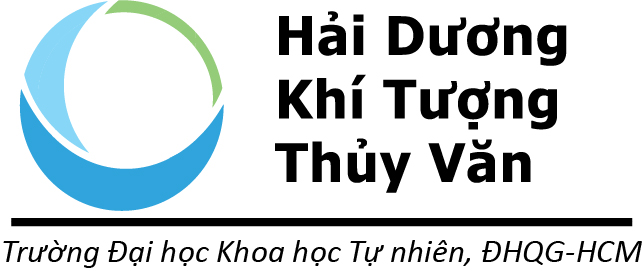On the morning of November 14, the Faculty of Physics – Technical Physics opened the Conference on Marine Science and Sustainable Development, a special event to celebrate the 20th anniversary of the establishment of the Department of Oceanography, Department of Oceanography, Meteorology, and Hydrology. The opening ceremony took place in a lively atmosphere with the presence of many scientists, international experts, and young researchers sharing scientific perspectives on the ocean.

Assoc. Prof. Dr. Tran Le Quan—Principal of the university, sent the message, “This workshop will act as a bridge connecting minds, inspiring research, and strengthening our common commitment to protecting the ocean—the green heart of the planet.”
Speaking at the Opening Ceremony, Assoc. Prof. Dr. Tran Le Quan—President of the University expressed his honor to welcome scientists, experts, and young researchers to this meaningful forum. The University leaders affirmed the important role of the conference: “Today’s event brings together scientists, experts, and young researchers to share the latest findings and innovative ideas towards a sustainable future for our oceans. This collaboration not only promotes marine science but also strengthens global connections in addressing common challenges such as climate change, marine pollution, and sustainable coastal management.”

The event was attended by many scientists, international experts and young researchers.
The Marine Science and Sustainable Development Conference includes 16 presentations, divided into 3 in-depth discussion sessions:
Session 1: Marine Science and Sustainable Development
- Sailing through science: The 20-year journey of OMH@HCMUS – Vo Luong Hong Phuoc
- From Taiwan to Vietnam: Advancing coastal monitoring with indigenous HF radar development – Hwa Chien
- Global trends in oceanic fronts: Implications for marine ecosystems—Andrew Fischer, Kai Yang, Phuc TD. Le
- No data, no story: High-precision measurements in marine chemistry (DMS as example) survive and advance in any environment—Sohiko Kameyama
- Machine learning applications: Classification and regression – Quoc Pham
Session 2: Microplastics – From research to forecast
- Chemical Drift—A new open source ocean pollution model – Lars R. Hole, Manuel Aghito, Øyvind Breivik
- Surface water contamination with microplastics in Poland: Trends and challenges – Piotr Zieliński, Karolina Mierzyńska
- Microplastics: Classification and prediction – Vo Luong Hong Phuoc, Piotr Zieliński, Sohiko Kameyama, Lars R. Hole, OMH group
- Detection and classification of microplastics using artificial intelligence: Challenges and opportunities – Pham The Bao, Le Nhi Lam Thuy, Vu Ngoc Thanh Sang, Dat Trinh, Tran Quang Vinh, Dang Nguyen Quoc Duong, Tran Thi Chung, Le Nguyen Hoa Tien, Vo Luong Hong Phuoc
- Integrating AI and GIS for forecasting saltwater intrusion in Ho Chi Minh City, Vietnam under climate change – Vo Thi Kim Kieu, Pham Thi Tuyet Huyen, Nguyen Kim Loi
Session 3: River-sea processes and coastal areas
- Formation mechanism of sandbar in Cua Dai–Thu Bon River mouth—Vu Tuan Anh, Nguyen Thi Thuy Dung
- Sub-mesoscale flows and near-inertial motions in the Mississippi-Atchafalaya River plume in the Gulf of Mexico – Pat Welch
- Water resource characteristics of the Mekong Delta: Current status, challenges, and sustainable management solutions – Tran Dang An
- The use of sand on a global scale and the impact on the marine environment – Klaus Schwarzer
- Coastal protection strategies with nature-based solution for climate change adaptation in coastal Mekong Delta – Le Xuan Tu
- Shifting tidal dynamics in the Mekong Delta: Unraveling the acceleration of tidal amplification and its anthropogenic roots – Nguyen Cong Thanh, Tran Van Xuan, Nguyen Nghia Hung, Dang Truong An

The workshop concluded with an affirmation of the pivotal role of marine science in providing data, solutions, and strategic directions for sustainable and timely ocean protection in the face of current environmental changes. In-depth discussions highlighted the importance of applying modern technology—from HF radar and precise chemical measurement methods to Artificial Intelligence (AI) and machine learning—to improve the capacity to monitor and forecast complex ocean systems. The focus of the workshop went beyond basic research on ocean dynamics to include urgent environmental challenges such as microplastic pollution on surface waters and the impact of climate change on coastal areas and estuaries. The solutions presented, from marine pollution modeling to nature-based coastal protection strategies, demonstrated the translation of scientific knowledge into strategic action.
Source: Dept of OMH
![]()



 VN
VN